Mercenary, The (1968)
“Never question a man who pays well.”
|
Synopsis: |
|
Genres, Themes, Actors, and Directors:
Review: With that said, I was glad to be introduced to Corbucci — the “other Sergio,” who also collaborated with Ennio Morricone — through this film; he was quite skilled at crafting both ultra-violent and humorous sequences. Nero and Musante make an effective “odd couple” — at times collaborative, at other times nemeses: … and Palance rounds things out nicely as a curly-headed ultra-baddie. (Together, the trio are a clear variation on the “good” [Nero], the bad [Palance], and the “ugly” [Musante].) This flick remains worth a look for fans of spaghetti westerns, but I’ll have to check out a couple of Corbucci’s other titles before deciding which one is must-see. Notable Performances, Qualities, and Moments: Must See? Links: |
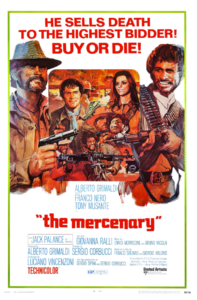
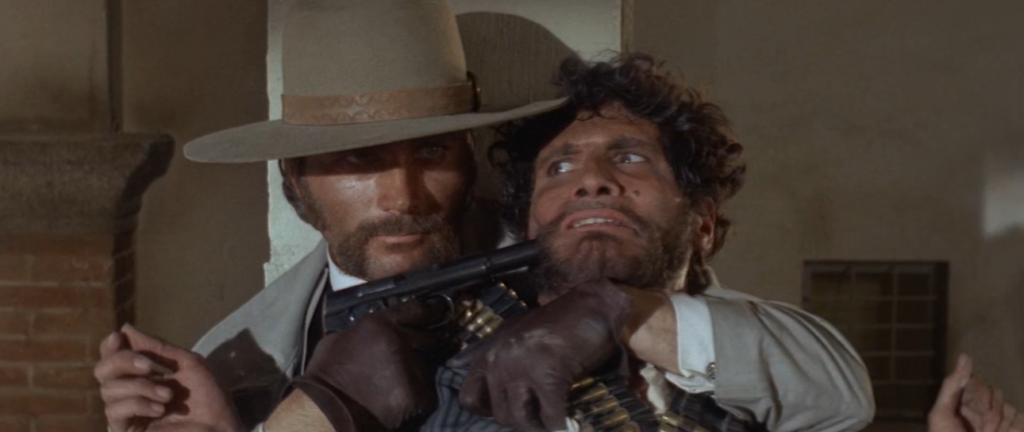
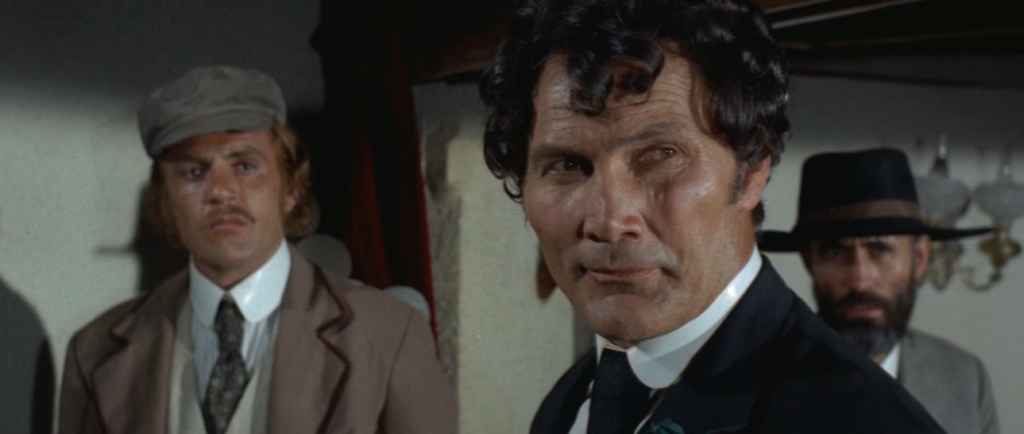
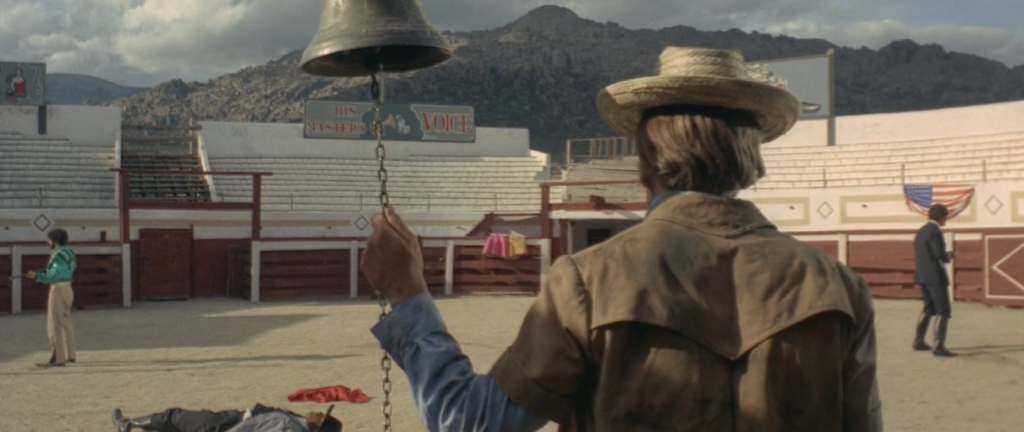
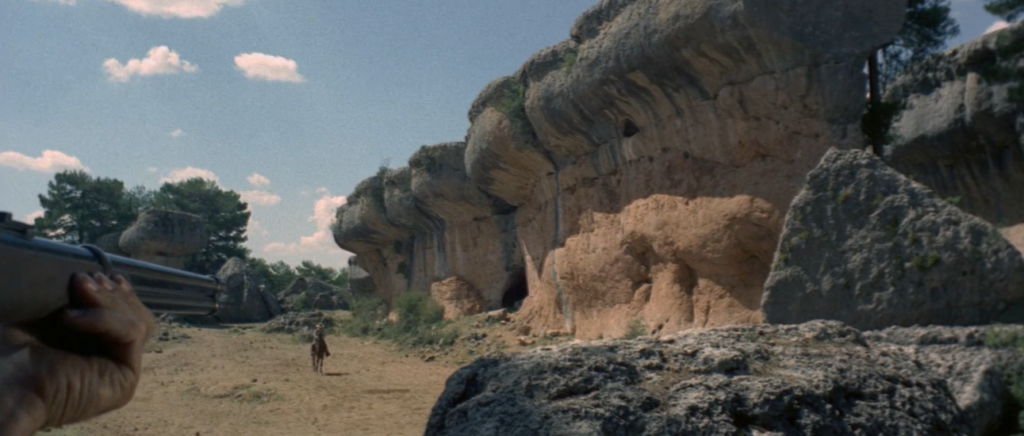
3 thoughts on “Mercenary, The (1968)”
First viewing (3/29/21). Not must-see but fans of spaghetti westerns will want to check it out.
This is the first film I’ve seen by Corbucci. (I feel I will also need to see ‘The Great Silence’ and ‘Django’.) Wikipedia tells us that he was the most successful Italian western director after Sergio Leone. It’s significant that he comes *after* Leone, considering Corbucci made over 60 films and Leone made only seven (!).
It’s maybe useless to compare the two directors since I’ve only seen one Corbucci film. Still, ‘The Mercenary’ – even though it’s not a bad flick – pales somewhat in comparison with Leone.
It has a script which, though not impossible to follow, feels somewhat shaky and convoluted. (It’s certainly busy.) It’s interesting that Leone regular Ennio Morricone is on-board as composer. Here – rather than embellishing as he usually does for Leone – Morricone’s assistance appears to be in aid for the coherence of the narrative.
For whatever reason, I didn’t feel as drawn in as I might if I were watching a Leone film. I did notice that Corbucci seems to go in for more violence – almost in a way reminiscent of Peckinpah.
This film also makes use of a device I’ve seen in other films (and it annoys me): Palance plays a nemesis who (about midway) comes to a showdown with Nero and Musante… but they let him go (after killing all of the men with him) even though there’s no reason to let him live – except so that the plot can make use of him later on in the film.
All told, the film is entertaining-enough but perhaps what I missed most was the kind of subtlety mixed with the deeper emotion that Leone brings to this kind of material.
Django (1966) and The Great Silence (1968) are splendid films (not seen The Mercenary yet) but as a primer I strongly recommend Luca Rea’s fine documentary Django & Django (2021) which is all about Corbucci. It also helps if you’ve seen Tarantino’s Once Upon a Time in Hollywood (2019) although that’s not essential (very good film though). I’m sure it’s on streaming somewhere but is also on the UK 4K UHD Blu-ray release of Django.
https://en.wikipedia.org/wiki/Django_%26_Django
Thanks, Rick – I will check out that documentary!